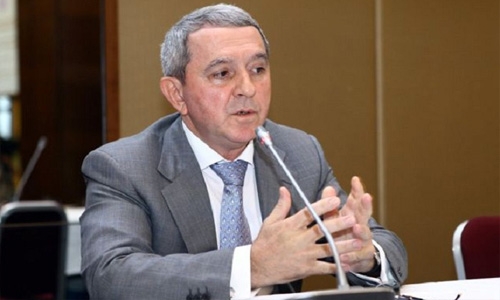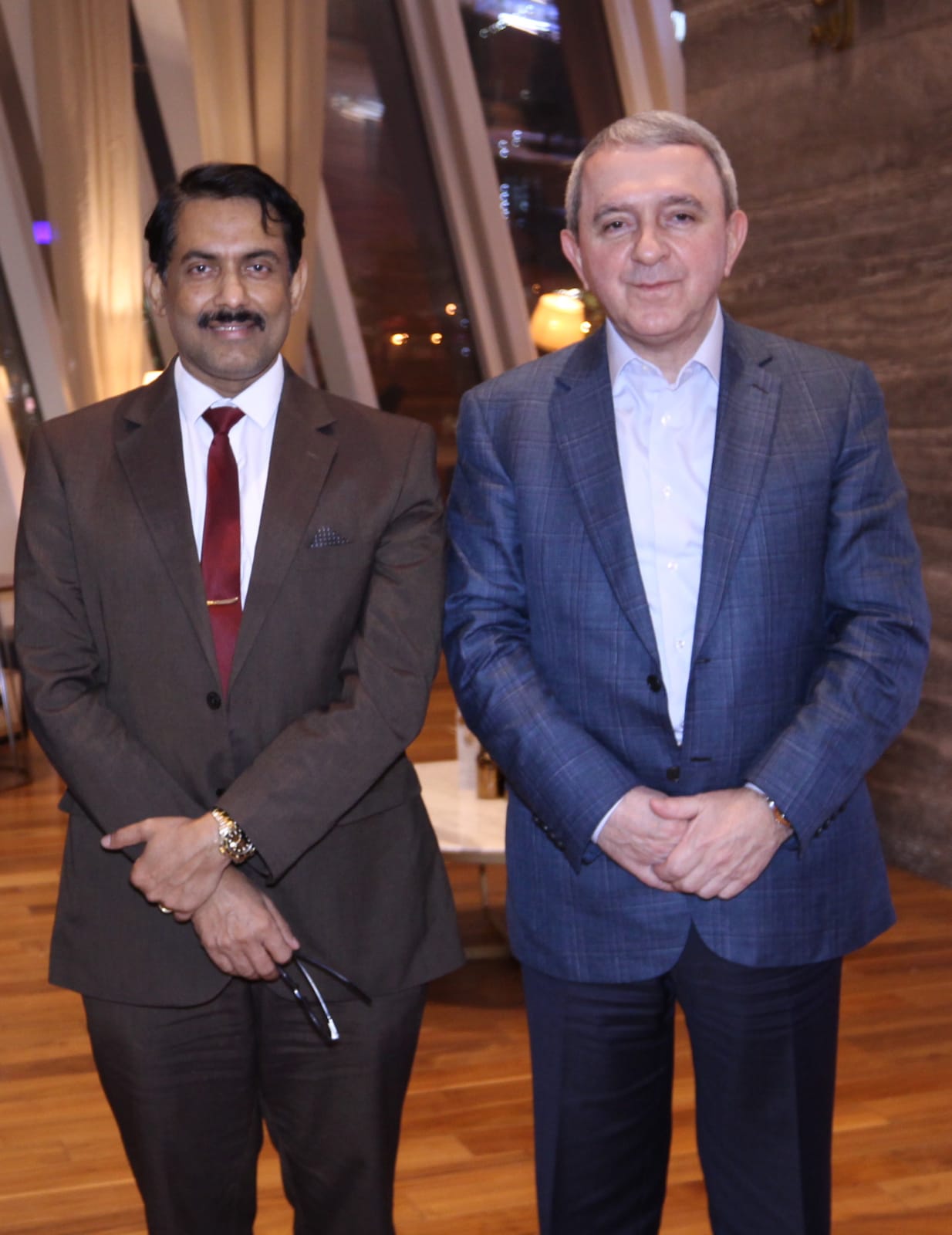Building towards a bright future
TDT | Manama
The Daily Tribune – www.newsofbahrain.com
By P Unnikrishnan
Azerbaijan was a popular tourist destination amongst Bahrainis before the global pandemic hit in early 2020, with more than 20,000 visitors from the Kingdom flocking to the Eastern European nation in recent years, says Azerbaijan Ambassador to Saudi Arabia Shahin Abdullayev.
In an exclusive interview with TDT, Ambassador Abdullayev said that Bahrainis were amongst his country’s leading foreign guests from the Gulf. “Over the last five years, we started to improve our tourism sector, and from the Gulf countries, so many tourists come to Azerbaijan; also for Bahrain, Azerbaijan is a very important destination,” he said.
“[We had welcomed] more than 20,000 [visitors], but because of COVID-19, it stopped. Before, it was good. “We have paid very great attention to our relationship with Bahrain, and since we restored our independence, we have established good relations with Bahrain and the Gulf countries. “Our relations are very active and very good.”
Tourism is one of the main non-oil sectors Azerbaijan has been looking to develop, as the country aims to reduce its economy’s dependence on its natural resources, Ambassador Abdullayev explained. “Oil and gas are our main sources for the economy, but we have also concentrated the last 10 to 15 years on non-oil sectors,” he said.
“We have improved on our information technology, we have three satellites, and we have good conditions as an agricultural country.” Ambassador Abdullayev said that Azerbaijan is home to people of many different nationalities and backgrounds, and this contributes to its vastly “rich culture”.
“We are a multinational and multi-religious country; this makes for a very good background,” he highlighted. “So many nationalities and all religions in country, this creates a very rich culture and very rich cuisine.
“All nationalities have all cultural elements. This is a natural situation, and the government does so many things to keep the country in a good way.
“The people are educated and have a historical background for coexistence. For us this is normal.”
Azerbaijan is currently trying to forge a lasting peace treaty with its neighbour to the west, Armenia, with whom it has had clashes over occupied territories since the early 1990s, after restoring its independence from the Soviet Union.
Most recently, on November 10 of this year, a ceasefire agreement was signed by President of the Republic of Azerbaijan Ilham Aliyev, Prime Minister of the Republic of Armenia Nikol Pashinyan and President of the Russian Federation Vladimir Putin to end all hostilities in the occupied Nagorno-Karabakh region and seven adjacent districts of the Republic of Azerbaijan.
Ambassador Abdullayev said that Azerbaijan is now trying to rebuild its most affected areas from the conflicts.
Ambassador said: “On September 27th Armenia launched large-scale military aggression against Azerbaijan.
During 44 days, armed forces of Armenia heavily shelled Tartar and other cities of Azerbaijan situated along the frontline. Armenia fired a ballistic missile against Ganja, Barda, Mingachevir, Gabala, Siyazan and other cities which are far away from the frontline.
They used heavy artillery, ballistic missiles, white phosphorus, cluster munitions to cause mass casualties and forced displacement among Azerbaijani civilians. More than 100 civilians, including 11 children were killed, more than 400 wounded”
He added, however, that plenty of major challenges remain, with scattered undetonated land mines, ravaged buildings and homes, and ecological problems such as burnt down forests, among others. Despite this, they remain hopeful.
“We signed statements, they were accepted by the three countries, and these three sides tried to solve all the problems,” he said.
He continued: “Azerbaijan is clearing mines in areas liberated from Armenian occupation. We have started to restore our liberated territories. We did not wait long before we started to build new roads, start to put in new infrastructure, police, governors and local authorities. Now they have come to these newly liberated places and started to work.”
P Unnikrishnan with Ambassador Abdullayev
Related Posts


